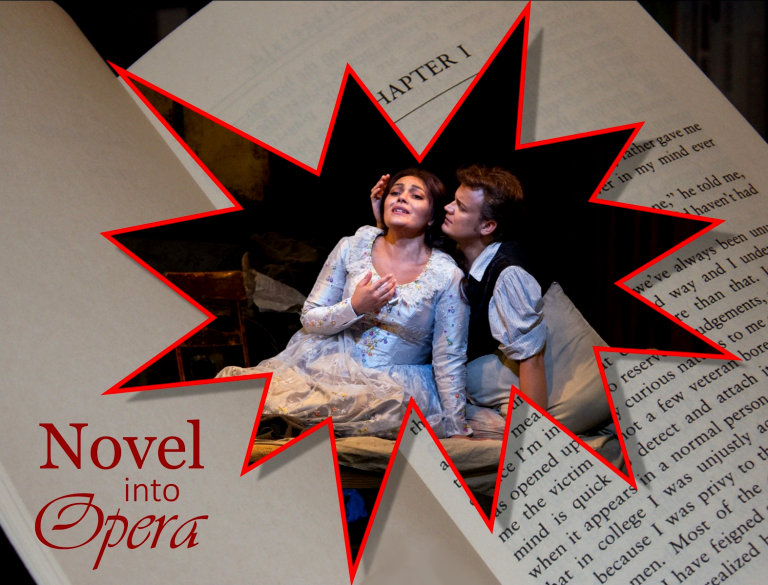| Handout (flat) Handout (folded) About the Book Script | Return to Index |
Neither of the main videos I played today is available on YouTube complete with English titles, but we don't do badly with substitutes. For the Massenet, we have the complete version we saw in class, though without titles, plus an older titled production with Renée Fleming that does have titles; I have also managed to find titled samples of each of the scenes we watched, though with other singers.
For the Puccini, we have the last 20 minutes of the production we watched, in three separate segments, with titles. For those wanting more, there is a 1997 complete production with titles from Glyndebourne, though it suffers from a bland Manon and shows its age. Much crisper is the 2017 production from Torino that we sampled briefly; although it has only Italian titles and also suffers from a physically less ideal Manon, it is the best period production out there.
*Asterisks indicate clips that are the same as those watched in class.
| MASSENET | |||
| Complete |
* Berlin, 2008
(as played in class, no titles) * Paris, 2001 (old video, with titles) |
||
| Scenes |
* "Adieu, notre petite table"
(Callas in concert, with titles) * Gavotte (Lisette Oropesa, with titles) * Saint-Sulpice scene (Netebko/Beczala, with titles) |
||
| PUCCINI | |||
| Complete |
* Glyndebourne, 1997
(older production, with titles) * Torino, 2017 (good video, traditional, no titles) |
||
| Act II love scene |
* Part 1
(Opolais/Kaufmann, with titles) * Part 2 * Part 3 |
||
| IMAGES | |||||
| The thumbnails below cover the slides shown in class. Click the
thumbnail to see a larger image. Click on the right or left of the larger picture to go forward or back, or outside it to close. |
|||||
 |  |  | |||
 |  |  | |||
 |  |  | |||
